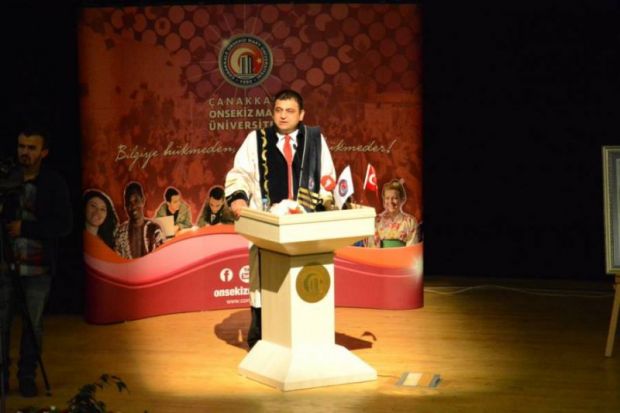A former rising star of Turkish academia has been sentenced to nearly 10 years in prison over his alleged links to a terrorist organisation.
In 2011, Sedat Laçiner became Turkey’s youngest university rector when he was appointed head of Canakkale Onsekiz Mart University, in the Dardanelles region, at the age of 39.
The internationally renowned political scientist, who holds a PhD from King’s College London, was also appointed an adviser to the president of Turkey’s Higher Education Board. He was a regular columnist for Star newspaper and a frequent commentator on Turkish television and radio.
However, Professor Laçiner was arrested in July 2016 shortly after an attempted coup and has since been held in detention over his alleged ties to the banned Gülen movement.
He was sentenced to nine years and four months in prison on 25 September after more than two years in pre-trial custody, according to the Turkey Purge website.
Professor Laçiner, a former editor of the Journal of Administrative Studies and Review of International Law and Politics, who took a masters’ with distinction at the University of Sheffield, is among thousands of academics and teachers who have faced immense difficulties following the coup two years ago.
More than 6,000 academics have lost their jobs in the post-coup crackdown and around 170,000 public servants, including scholars and teachers, have been dismissed.
The Turkish government accuses Gülenists of masterminding the failed coup but the group denies involvement. More than 450,000 people have been subjected to investigation over ties to the movement since the summer of 2016, while Professor Laçiner, who has written extensively about the Armenian genocide and Turkey’s relations with the US and EU, has vehemently denied all the charges against him.
In a letter published on the Stockholm Center for Freedom website in March, Professor Laçiner denied any contact with or membership of the Gülen movement.
No credible evidence of wrongdoing had been presented against him and the case is likely to rest on whether anyone who had downloaded the banned encrypted messaging app, Bylock, had called him in the previous seven years, he explained.
“Through me, not only justice and freedom of opinion, but also reason is being destroyed,” said Professor Laçiner.
“A terrorist, a traitor, a coup plotter cannot be derived from the nationalist and patriotic posture of a person like me who always defends the interests of this country, a writer and a scientist like me who supports the government when it does the right thing and whose criticism is always constructive,” he added.




